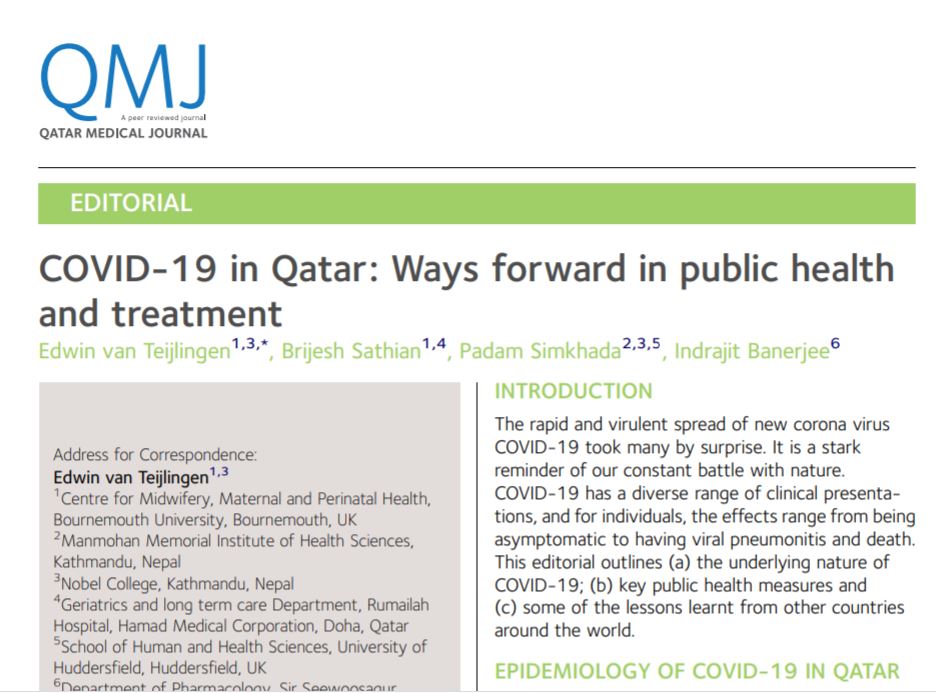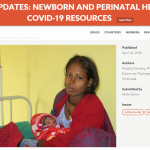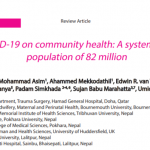 Peer reviewing is the backbone of academic publishing. It is this peer review process to ensure that papers/publications have been vetted scientifically prior to publication by experts in the field, i.e. one’s peers. However, the process is not without its problems. One such problems is the delay in academic publishing. For example, a few days ago we published a substantive editorial on COVID-19 in Qater [1]. When we submitted this in July 2020 the information in our editorial was very up to date, and it still was when the Qatar Medical Journal accepted it on 26th July 2020. Unfortunately, with all the incredibly rapid developments in vaccine development, approval and roll out some of the paper now reads like ‘historial data’.
Peer reviewing is the backbone of academic publishing. It is this peer review process to ensure that papers/publications have been vetted scientifically prior to publication by experts in the field, i.e. one’s peers. However, the process is not without its problems. One such problems is the delay in academic publishing. For example, a few days ago we published a substantive editorial on COVID-19 in Qater [1]. When we submitted this in July 2020 the information in our editorial was very up to date, and it still was when the Qatar Medical Journal accepted it on 26th July 2020. Unfortunately, with all the incredibly rapid developments in vaccine development, approval and roll out some of the paper now reads like ‘historial data’.
Prof. Edwin van Teijlingen
Centre for Midwifery, Maternal & Perinatal Health (CMMPH)
Reference:
- van Teijlingen, E.R., Sathian, B., Simkhada, P., Banerjee, I. (2021) COVID-19 in Qatar: Ways forward in public health & treatment, Qatar Medical Journal 2020(38): 1-8 https://doi.org/10.5339/qmj.2020.38
 New COVID-19 publication by FHSS academics
New COVID-19 publication by FHSS academics Pregnancy and COVID-19: Lessons so far
Pregnancy and COVID-19: Lessons so far New FHSS co-authored COVID-19 publication
New FHSS co-authored COVID-19 publication COVID-19 Pandemic: Public Health Implications in Nepal
COVID-19 Pandemic: Public Health Implications in Nepal










 REF Code of Practice consultation is open!
REF Code of Practice consultation is open! BU Leads AI-Driven Work Package in EU Horizon SUSHEAS Project
BU Leads AI-Driven Work Package in EU Horizon SUSHEAS Project Evidence Synthesis Centre open at Kathmandu University
Evidence Synthesis Centre open at Kathmandu University Expand Your Impact: Collaboration and Networking Workshops for Researchers
Expand Your Impact: Collaboration and Networking Workshops for Researchers ECR Funding Open Call: Research Culture & Community Grant – Apply now
ECR Funding Open Call: Research Culture & Community Grant – Apply now ECR Funding Open Call: Research Culture & Community Grant – Application Deadline Friday 12 December
ECR Funding Open Call: Research Culture & Community Grant – Application Deadline Friday 12 December MSCA Postdoctoral Fellowships 2025 Call
MSCA Postdoctoral Fellowships 2025 Call ERC Advanced Grant 2025 Webinar
ERC Advanced Grant 2025 Webinar Update on UKRO services
Update on UKRO services European research project exploring use of ‘virtual twins’ to better manage metabolic associated fatty liver disease
European research project exploring use of ‘virtual twins’ to better manage metabolic associated fatty liver disease
Hi Edwin, although I appreciate your frustrations in the publishing process there is another side to this which I am sure you acknowledge. As editors of a peer reviewed journal Anna Hillingdon and I have received double the submissions of manuscripts over the past 12 months (986) as academics, globally, are working remotely and turn their attention to publishing and this presents huge issues to editors in securing reviews. Many journals now have early view systems so that an Academic’s research is in the public domain as soon as the final edits are executed and agreed. We do our best! Incidentally we have received over 200 manuscripts on covid related research. Keep the articles flowing and don’t be despondent! Best wishes John